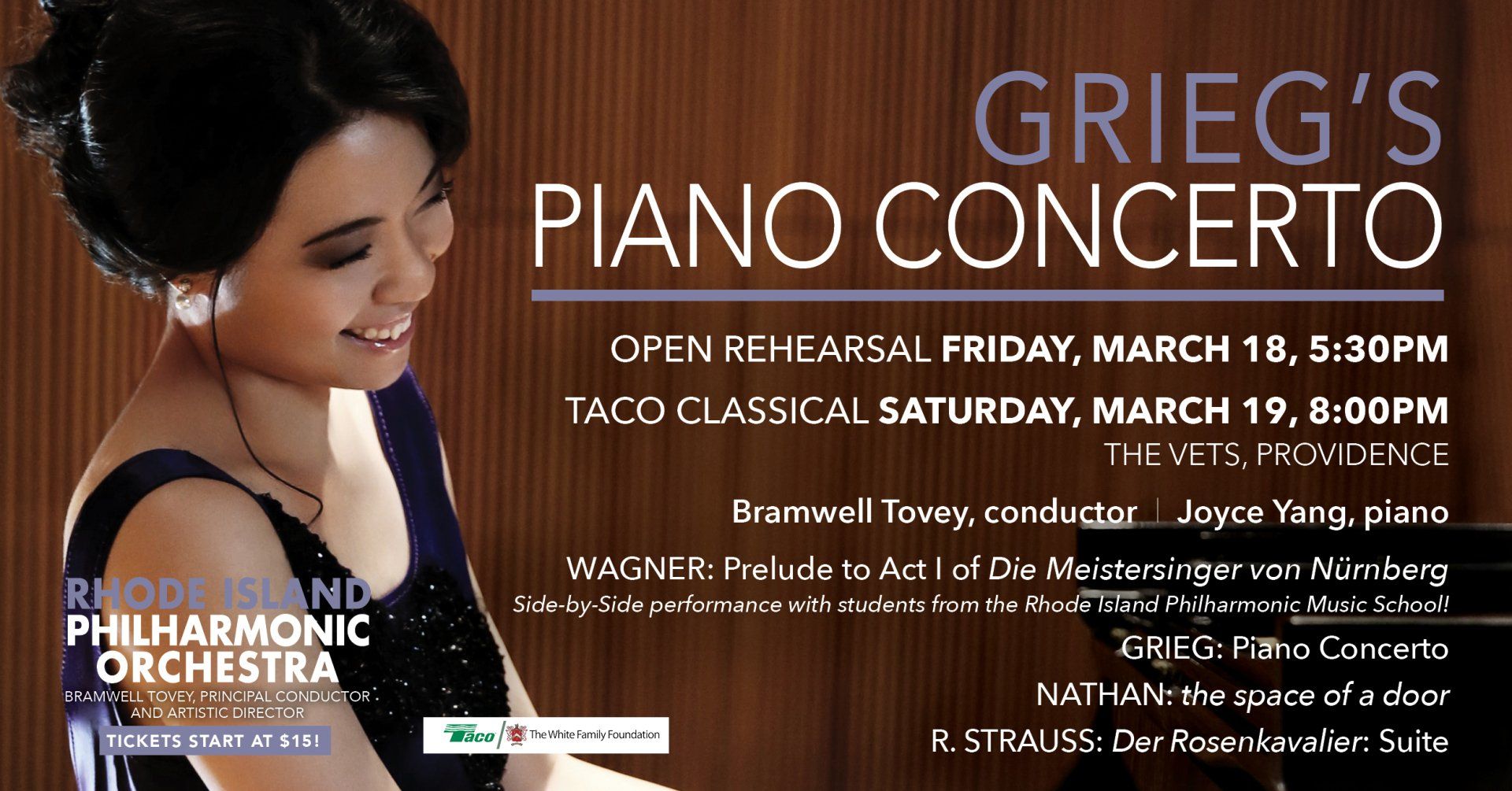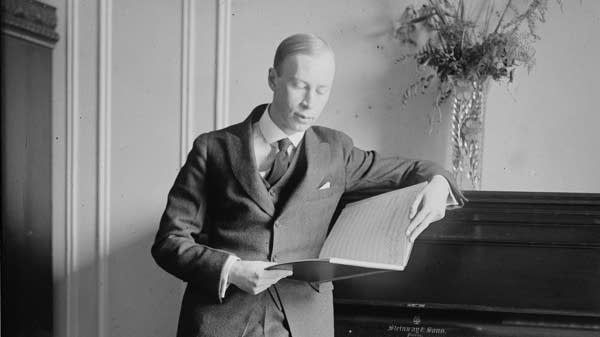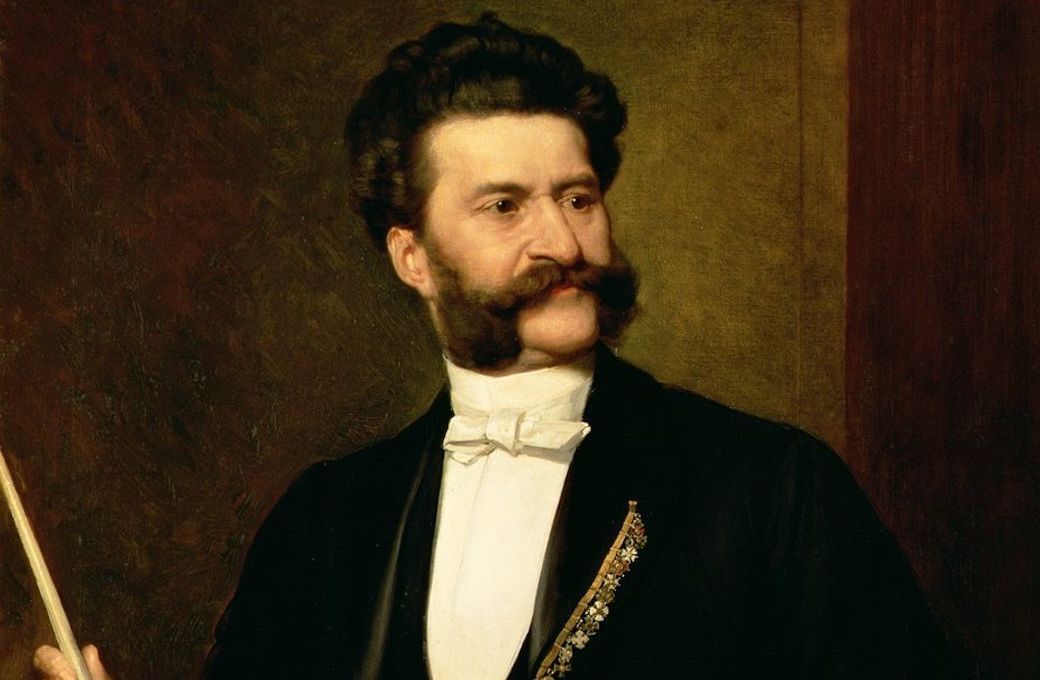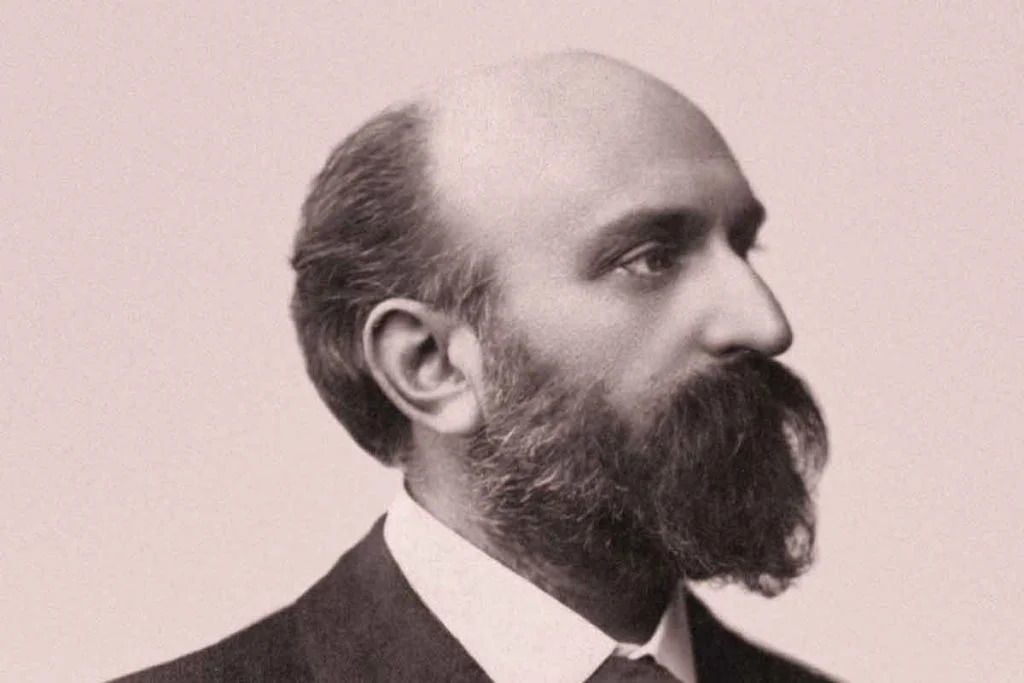THE STORY BEHIND: Strauss's Suite from "Der Rosenkavalier"
Share

On March 19, Bramwell Tovey and the Rhode Island Philharmonic Orchestra will present Grieg's Piano Concerto with pianist Joyce Yang.
THE STORY BEHIND: Strauss's Suite from
Der Rosenkavalier
Title:
Der Rosenkavalier,
TrV 227d, op.59: Suite
Composer: Richard Strauss
(1864-1949)
Last time performed by the Rhode Island Philharmonic:
Last performed February 24, 2007 with JoAnn Falletta conducting. This piece is scored for two flutes, piccolo, two oboes, English horn, two clarinets, E-flat clarinet, bass clarinet, two bassoons, contrabassoon, four horns, three trumpets, three trombones, tuba, timpani, percussion, two harps, celesta and strings.
The Story:
When Richard Strauss and Hugo von Hofmannsthal finished the comic opera,
Der Rosenkavalier, in 1909, it was a complete departure from the intense subject matter on which they had previously collaborated. The new farcical but deeply psychological opera was, in the words of the Earl of Harewood (opera historian), “a masterpiece of pastiche, an evocation of an unrealistic, fairy-story Vienna of long ago, a brilliant tour-de-force.” For Strauss, the stylistic approach was different from anything he had tried in his orchestral or operatic works up to that time: a sort of amalgamation of Mozart and Wagner — as if that were possible.
The novel style of the score can be heard right from the
Introduction played before the curtain goes up. The music implies a scene of lovemaking between The Marschallin, a noble woman on the brink of middle age, and Octavian, a youth (sung in the opera by a soprano in the manner of
The Marriage of Figaro’s Cherubino).
However, in Act II, it is Octavian’s destiny to fall in love at first sight with Sophie, whom he meets when making
The Presentation of the Rose. He is performing this courting ritual on behalf of Baron Ochs, a countrified, oafish nobleman who hopes to replenish his dwindling fortune with Sophie’s dowry.
The Arrival of Ochs quickly draws his profile, but his character is best heard in the charming but decadent-sounding
Waltzes of Acts II and III.
Octavian plays an elaborate joke on Ochs in Act III, and after Ochs’s departure, Octavian, Sophie, and The Marschallin are left alone on stage. Together, they sing the famous
Trio, in which Sophie experiences a moment of awe, Octavian admits his love for Sophie, and The Marschallin bids a bittersweet farewell to her former lover. Following the Marschallin’s departure, Sophie and Octavian sing a final love
Duet to a naive, folklike melody that savors of Mozart’s
Magic Flute. After the couple exits, a final bit of burlesque rounds out the opera and the Suite, as a servant boy returns and quickly retrieves Sophie’s dropped handkerchief.
Program Notes by Dr. Michael Fink © 2022 ALL RIGHTS RESERVED
Tickets start at $15! Click HERE or call 401-248-7000 to purchase today!







